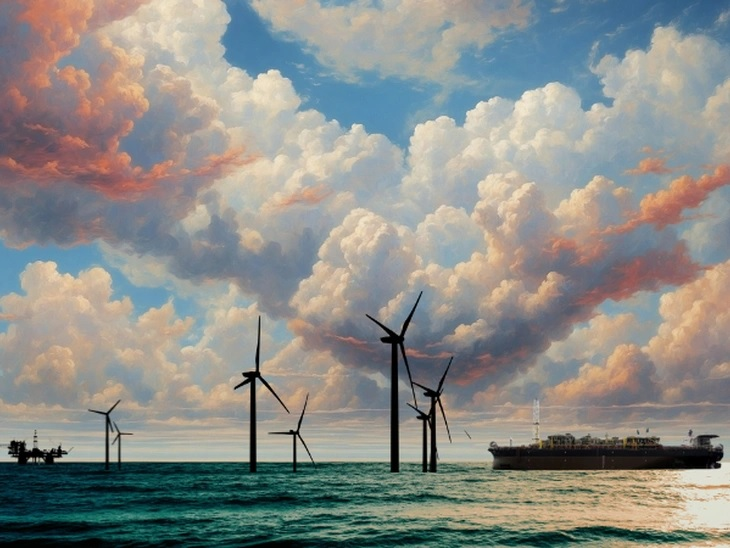
 Wind Energy
Wind Energy
The government must act to convince Congress of the negative effects of the "riders" included in the legislation, which could raise electricity bills by 3.5%.
T&B Petroleum/Press Office Fecomércio SP
After the National Congress overturned part of the government’s vetoes on the so-called “riders” (“jabutis”) in the Offshore Wind Law (Law No. 15.097/2025), the Executive Branch signaled it will issue a new Provisional Measure (MP) to annul the lawmakers’ decision and reinstate the presidential vetoes. By rule, an MP is valid for only up to 120 days, during which Congress must confirm it—otherwise, it becomes void.
According to the Federation of Trade in Goods, Services and Tourism of the State of São Paulo (FecomercioSP), if this is the government’s only measure to block the “riders” in the law, it will be ineffective. A more strategic and structured effort is needed to persuade lawmakers of the harmful consequences the law may have for the country — particularly to prevent the remaining vetoed riders from also being reintroduced.
Meanwhile, low-voltage consumers — households and businesses, especially Micro, Small, and Medium Enterprises (MSMEs) — are the ones bearing the cost. More than that, Brazil, which aspires to lead the global environmental agenda and will soon host a UN Climate Conference (COP) in Belém this November, cannot afford to institutionalize rules that favor highly polluting power plants, such as those fueled by coal and gas.
Among other issues, the law — as it currently stands — requires the procurement of Small Hydropower Plants (SHPs), liquid hydrogen from ethanol produced in the Northeast, wind power installations in the South, and also extends contracts under the Incentive Program for Alternative Sources of Electric Energy (Proinfa).
According to calculations from industry associations, this would result in an average 3.5% increase in electricity bills for Brazilian consumers — equivalent to a total rise of R$ 197 billion.
A major reason for questioning the effectiveness of an MP as an institutional tool is found in another MP related to the energy sector: MP 1,300/2025, issued in May this year. It introduced changes to the social tariff system, allowed low-voltage consumers into the free market, and opened space for greater balance between the regulated and free markets. During its legislative process, nearly 600 amendments were proposed — many of them being “riders” unrelated to the bill’s original purpose.
Worse still, some of these amendments in MP 1,300/2025 are also expected to increase consumer energy costs. More than 30 days after submission, the proposal is still awaiting review in Congress — and has yet to have its review committee members appointed.
What is being observed, in reality, is that Congress appears to prioritize the interests of large energy sector players — SHPs, wind power companies, and thermal power plants — rather than taking into account the situation of low-voltage consumers: households and businesses, particularly in the trade and service sectors.
According to FecomercioSP, in alignment with multiple stakeholders in the energy sector and in response to environmental concerns — a key priority for the Federation — the Executive Branch must take the lead in national energy planning, free from such high levels of legislative interference.
Laws, above all, should not force the government to increase energy generation capacity. While this situation persists, Brazilian citizens will continue to suffer. Higher energy bills reduce people’s purchasing power for other expenses and raise fixed operating costs for commerce, services, and small businesses — which are the backbone of the national economy.
Moreover, the law contradicts everything FecomercioSP believes should define public policy on environmental matters. The Federation’s Green Agenda even proposes that the country adopt stronger measures to implement energy efficiency and promote a reindustrialization strategy based on sustainable principles.
It is necessary, for example, to move forward with the regulation of Law No. 14.993/2024 (Fuel of the Future) and replace fossil fuels with biomass in power generation and mobility. As long as riders like these go unchecked, such goals will remain out of reach.
About FecomercioSP
FecomercioSP brings together business leaders, specialists, and consultants to promote entrepreneurial development. In collaboration with government authorities, it works toward debureaucratization and modernization, develops solutions, conducts research, and provides practical content on matters that affect entrepreneurs. It represents 1.8 million entrepreneurs, who account for nearly 10% of Brazil’s GDP and generate around 10 million jobs.
Contact us